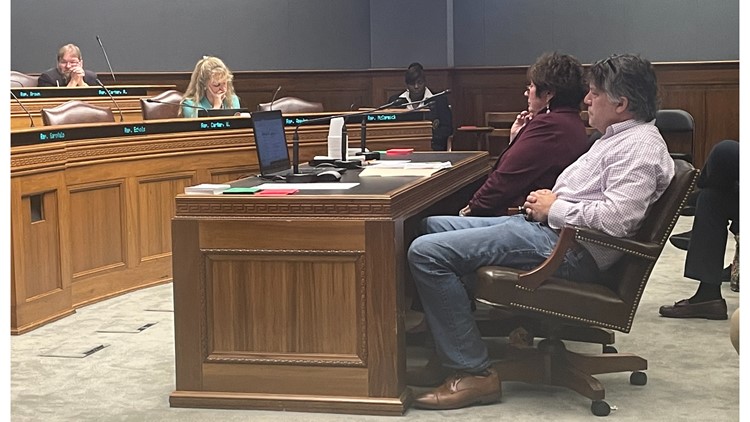BATON ROUGE, La. — The House Committee on Civil Law and Procedure advanced a bill Monday that would prohibit discrimination over vaccination or immunity status.
House Bill 252, sponsored by Rep. Kathy Edmonston, R-Gonzales, would amend several existing discrimination statutes, adding vaccination or immunity status as a protected class.
In most statutes, protected classes include race, sex, color, national origin, age, disability as well as occasionally marital status, economic status, family status and creed.
Edmonston’s bill originally applied to all discrimination statutes, including those related to employment, education, lending, health care and insurance. It was amended in committee to not apply to discrimination in housing rental and sales.
The bill passed 9-4 with all of the Republicans in favor and four of the committee’s Democrats opposed.
“Discrimination, as we all know, is not a Louisiana value,” Edmonston said. “It has a negative effect on our economy and our people young and old. They'll be looking elsewhere for jobs, leaving our state. They believe in equal access for all under the law.”
“We believe whether to vaccinate or not should be a personal choice,” Edmonston, who has publicly questioned the safety and efficacy of vaccines, said. “And those who choose to depend on their natural immunity should not be coerced, manipulated, threatened with job loss, experience financial hardship or be shamed into receiving a vaccination.”
While the bill applies to all vaccines, most of the discussion centered around COVID-19 vaccines.
Rep. Beryl Amedee, R-Houma, who also has criticized vaccine mandates, said that she had heard from constituents who have been hospitalized with COVID and subsequently had their insurers refuse to cover the expenses due to not being vaccinated. Edmonston said that her bill would prevent that from happening.
Several people who claimed to have been discriminated against based on vaccine status testified in support of the bill.
Dr. Kathy Willis said she was fired from her position in a healthcare setting for refusing to get the vaccine or fill out an exemption form.
Tommy Waller, a former Marine officer, said that his refusal to take the vaccine precluded him from military service and cost him his military medical benefits.
“I'm blessed that the Taliban, al Qaeda, the adversaries off on the battlefield did not have the ability to take me out of the fight,” Waller said. “This mandate has taken me out of the fight.”
The U.S. military requires vaccinations to help keep units ready to deploy on short notice. Fewer than 12,000 of the nation’s 1.6 million active-duty and reserve personnel have refused COVID vaccines. About 3,800 of them have been removed from service.
Rep. Robby Carter, D-Amite, who is immunocompromised due to a kidney transplant, opposed Edmonston’s bill. He asked why he should be forced to let unvaccinated people into his law office.
Fiorella Trapani, an advocate with Health Freedom Louisiana, an anti-vaccine advocacy group, told Carter it was his opinion that someone who has not been vaccinated poses a threat to his health.
Christopher Alexander contended that if the vaccine really worked, Carter could rely on his own vaccine status to protect him.
Like most vaccines, the COVID-19 vaccines work best when as many people as possible are vaccinated, infectious diseases experts say. About 60% of Louisiana residents have received at least one vaccine dose, which is one of the lowest vaccination rates in the nation.
Rep. Sam Jenkins, a Shreveport Democrat, raised concerns about vaccine status rising to the same status as race.
“There's not a lot a person could do about their race or their sex,” Jenkins said. “There's something you can do about taking a vaccination, and I just don't agree with bringing it to the same level.”



